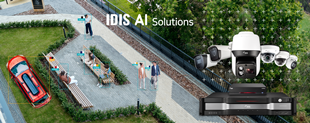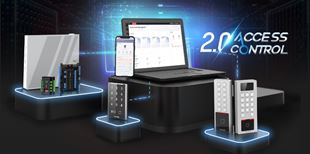"There are many reasons for these differences, of course", says Chan, "but I would like to suggest that one is Hong Kong’s willingness to adopt technological solutions - like thermal cameras."
Since the first case of the virus emerged in Hong Kong in late January, businesses have been asking about the technology to halt the spread. Every time an alarm goes off and a person is turned away from a business due to a fever is a potential super-spreader event avoided, helping to protect staff, visitors, and the business’s reputation.
"When I’m out in Hong Kong, there are now many places that check your temperature as you enter. However, when I see a man or woman holding a handheld thermometer, it makes me feel uncomfortable. Usually, they cannot take your temperature without standing extremely close to you - an avoidable risk for them, and an avoidable risk for me. Even with masks, standing at least a metre away is an important element in stopping the spread of the virus." explains Chan.
Coronavirus moves fast. It moves silently. Often, you cannot identify who caused the outbreak. But, according to G4S the technology is rapidly catching up with the threat. Chan explains that cameras can now even measure the temperatures of people in vehicles.
The cost of thermal cameras is extremely competitive, often costing less than hiring people to measure people as they enter. G4S has recently been installing cameras for a major fast food chain in Hong Kong. "They are not intrusive, they look professional, and add an atmosphere of objective care." says Chan.
The primary role of thermal cameras is undoubtedly to improve public health, but Eric Chan suggest that they have another, important impact. "A business employing effective thermal imaging technology is a business that is publicly demonstrating that it is well-organised and committed to the health and wellbeing of its staff and others."
The cameras, which can test dozens of people at a time, help by filing shoppers, travellers or workers with confidence that the business is taking the threat seriously.
Cameras are one measure among many, but they are not an insignificant one. Chan believes that as the world grows more aware of the risks and ways to prevent the spread of COVID-19, cameras will be seen as a more vital string in the bow of businesses, governments and other organisations.
"If deployed with appropriate social distancing, mask wearing and hand washing, thermal cameras can be a powerful part of the arsenal in the fight to control coronavirus." concludes Eric Chan, Executive Director of G4S Security Systems Hong Kong.

















